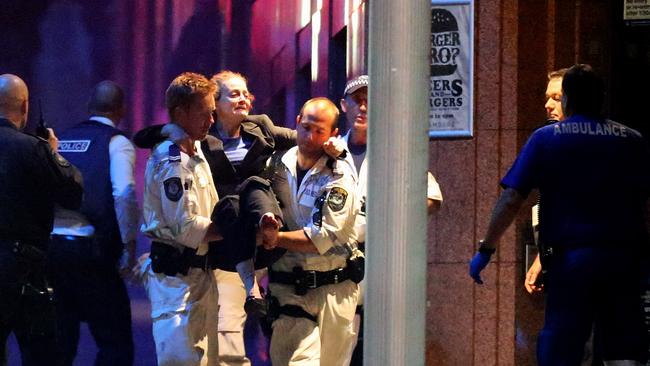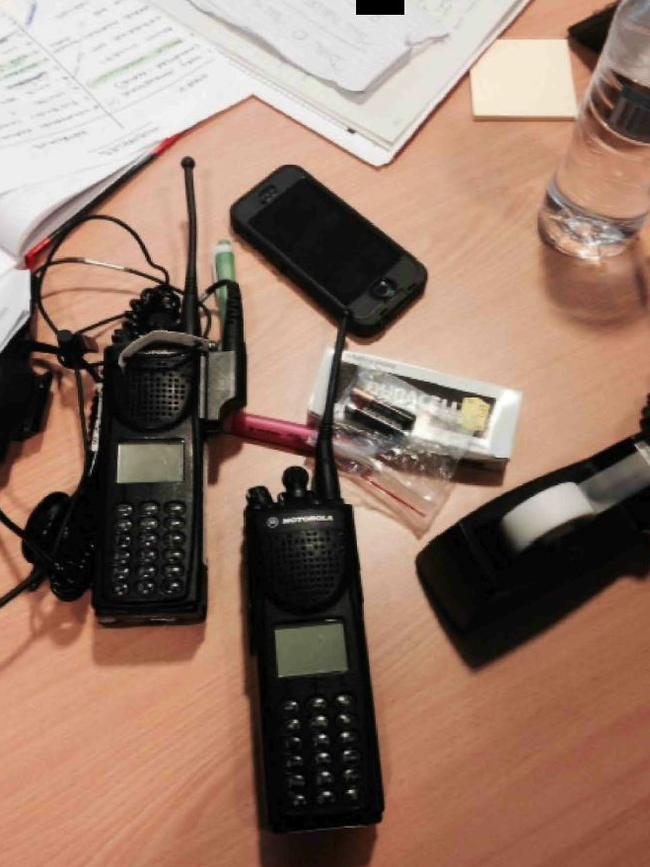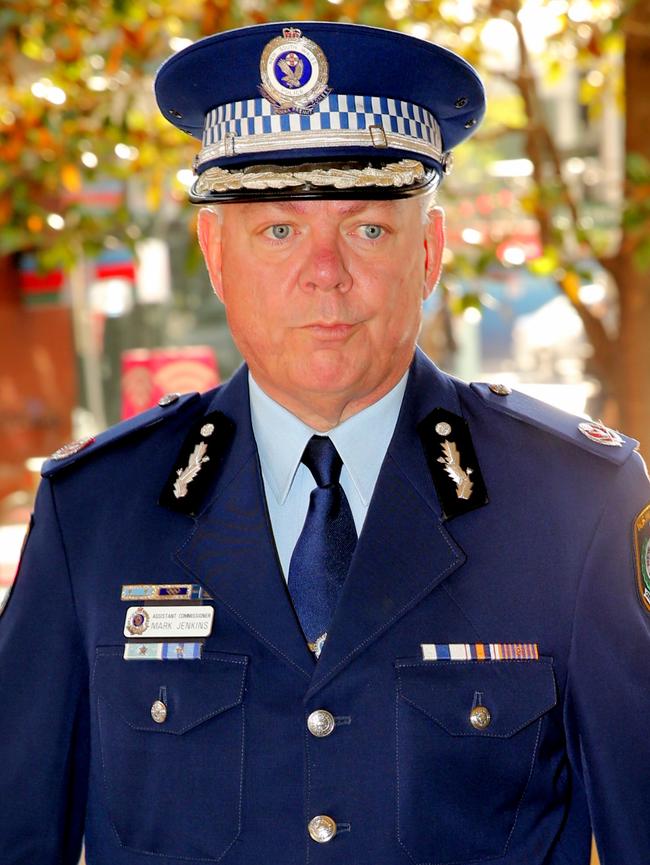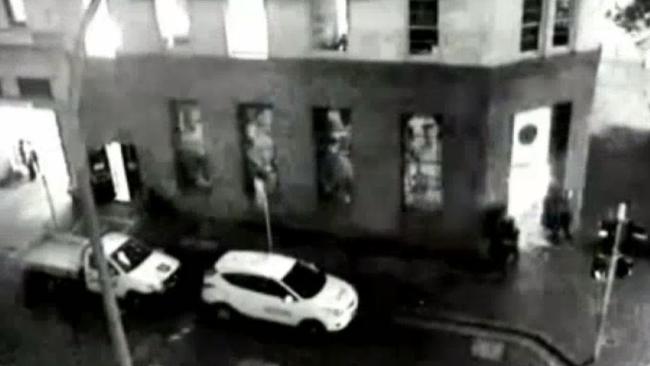Sydney siege inquest: Top cop rejected plan to storm Lindt Cafe
A PLAN that could have been executed without the loss of hostage life was recommended to a top cop and declined, an inquest has heard.

THE tactical commander of the Sydney siege says a plan to raid the Lindt Cafe was recommended to a top cop and declined but could have been initiated and executed without the loss of hostage life, an inquest has heard.
The Commander of the NSW Police Tactical Operations Unit (TOU), whose name is suppressed, told the inquest into the deaths arising from the siege that he believed the risk of storming the cafe before a hostage was injured or killed was less than waiting for an emergency action plan to be triggered by death or injury.
At about 2am, just three minutes before six hostages escaped and Man Haron Monis fired his sawn-off shotgun for the first time, the tactical adviser said he was in favour of police enacting a deliberate action plan.
He said that at 11.21pm, three hours before cafe manager Tori Johnson was executed by the gunman, a written deliberate action plan was provided to Assistant Commissioner Mark Jenkins, who took over police command at 10.15pm.
The adviser told the inquest he asked Mr Jenkins to approve the plan in case it later needed to be executed. He said he had a second discussion with him about the issue at 12.15am.
“It was a sound plan and it was able to be conducted by the personnel on the ground,” he said.
He said Mr Jenkins responded: “I understand my job, just go ahead and go and do yours.”
The deliberate action plan was not approved or authorised.


Counsel assisting Jeremy Gormly asked the tactical adviser if he thought the deliberate action plan should have been executed.
“I think it’s always the case you prefer to go in on your own terms instead of on the terms of the others,” he said.
“The plan was sound. It had been tested to some degree ... it appeared to be sound and that it would work. I don think it’s my role to convince the police commander to do his job.”
The tactical adviser said the EA should have been the last resort, not the DA.
NSW Coroner Michael Barnes asked the tactical adviser if a deliberate action plan could have been executed without the loss of hostage life.
“We can’t guarantee what (the gunman) is going to do on entry in response to stimulation thrown in or delivered in stronghold,” the tactical adviser said.
The officer said there was an opportunity for police to enter the building through a number of doors.
The inquest has previously heard that police could have raided the Lindt Cafe before Monis fired any shots but instead continued with a policy of “contain and negotiate” because of a bomb threat.
A senior police officer, who cannot be named for legal reasons, told the siege inquest last month that he had “significant concerns” about a deliberate action plan to enter the cafe being enacted because it was not necessarily safer than an emergency action triggered by the death or serious injury of one of the hostages.
The decision for police to avoid following a “Deliberate Action” plan in favour of the policy of “contain and negotiate”, is among several strategies being analysed during the inquest into the deaths arising from the siege.
The tactical adviser said the “delineation” between the forward commander and police commander was clear. He explained that it was ultimately up to the police commander to approve a DA plan.
“I don’t think it’s ever been clearer because there’s only two players. But all these other commanders, the commander of the SPG, this commander, that commander...it’s a commander-thon,” he said.
Gabrielle Bashir, counsel for Tori Johnson’s family, suggested that a critical communication failure was also to blame for the DA not being executed in the final minutes of the siege.
The gunman fired the first shot at escaping hostages, and missed, at 2.03am.
Ms Bashir put it to the tactical adviser that a sniper’s radio call about observing Mr Johnsons then being forced to his knees, seven minutes before he was executed by Monis, was not received at 2.06am.
Ms Bashir asked the tactical adviser if an alleged communications or equipment failure meant there was a “critical failure on the night”.
“The failure is that the information didn’t get to the other end...for whatever reason,” he responded.
“It didn’t get to my end”. I didn’t hear it. That is something that I’d remember.”
Ms Bashir said sniper ‘Sierra One’ called in at 2.09am to report “a shot being fired”...that “appeared to be a muzzle flash”.
It was the second shot Monis had fired. No one was hit.
Ms Bashir said records showed that an unidentified officer had called over the radio: ‘Tango Charlie acknowledge that mate and can you ascertain whether you saw those hostages escape?’
“And then the sound cuts out,” Ms Bashir said.
She said the next record at 2.10am showed the officer said: ‘Tango Charlie you are weak and unreadable’.

“Does that suggest to you there was some issue with communications between Tango Charlie and whoever he was communicating with on that occasion?” Ms Bashir asked.
Tactical adviser: “It appears so.”
The gunman was killed by police and hostage Katrina Dawson died after being hit by police bullet fragments, about 17 hours after the siege started.
The inquest today heard that the tactical operations officers who stormed the building had “been on the ground” for 16 hours prior to taking down the gunman.
Michael O’Connell, counsel for Katrina Dawson’s family, quizzed the tactical commander over whether or not the officers were fatigued and should have been subject to an earlier shift change.
“Around 5pm steps were taken to get relief officers to come into NSW to assist with the operation at the Lindt Cafe,” Mr O’Connell said.
“By 2am that relief had not occurred.
“The effect of that was when the EA occurred the officers who had to effect it were officers who had been standing in position for 16 hours or there abouts.”
The tactical adviser said the officers had been on the ground for that period of time but “the description of them standing in one position is not right”.
“They had been standing around the cafe and at various times they were asked to stand to in what was obviously an intense situation … Being in that position for 16 hours is not an ideal position is it?” Mr O’Connell said.
The tactical commander agreed but explained it wasn’t ideal to rotate officers because those incoming would not have had the same understanding of the issue as those who had been there throughout the day.
“Had we been authorised to initiate the DA (the officers) would have been able to do that and successfully accomplish the mission on the ground,” he said.

